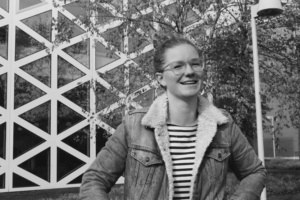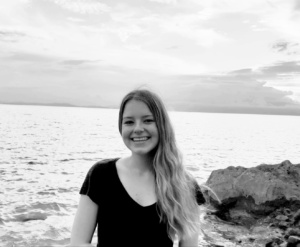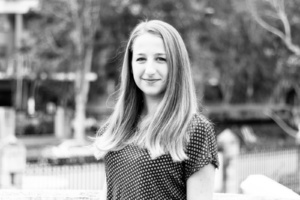This website uses cookies so that we can provide you with the best user experience possible. Cookie information is stored in your browser and performs functions such as recognising you when you return to our website and helping our team to understand which sections of the website you find most interesting and useful.
New Economy and Social Innovation Forum: WEAll Youth participation
Last week was the NESI (New Economy and Social Innovation) Forum in Malaga, and we met a lot of interesting people. In these three days we travelled to the year 2030. The big questions were: what does our economy look like in 2030 and what did we do in 2019 to get there?
NESI is held every 2 years in Malaga. The Wellbeing Economy Alliance is one of the partners of the Forum. The programme of the Forum was as follows: each day started with a plenary opening, there were conversations, speeches, and interviews on stage, and there were 3 working sessions, 1 on the first day and 2 on the second day.
For the working sessions, you could choose between 6 different tracks: the future of food sovereignty, the future of urban and housing, the future of finance, the future of work, the future of sustainable textiles and the future of resources and energy. Within each working session, different questions would be tackled: What is happening right now (2019)? Which are positive aspects and which do we want to keep and grow? What will it look like in 2030? What do we need to do to get there? These questions were answered in every track. You could choose to go to the same track every day or you could switch it up.
In between the working sessions and the plenary session, there was time to network, walk around and take a look at the different booths. At this time we were often at the WEAll booth, talking to people about WEAll and WEAll Youth.
One of the highlights of NESI was the WEAll gathering. After NESI was done, we spent Friday afternoon with everyone from WEAll. We had a WEAll members meeting like any other, with the exception that it was in real life, instead of through zoom. It was amazing to see all of the people you normally see on zoom, in real life. The meeting was about updates from every aspect of WEAll. We also got some time to talk about WEAll Youth, which was a great opportunity to tell members from around the world about the things we are doing and planning to do in the future. Besides the WEAll gathering, we also attended the WEAll dinner which was also a very nice way to connect with everyone at WEAll. At these gatherings, we made crucial connections with people from the WEAll community and got so much support and praise that it was overwhelming! We are very grateful to have gotten the opportunity to meet all these amazing people and were uplifted by their work and their kind words towards WEAll Youth.
Tracks – our take
 Pien: Personally, I was mostly interested in the sustainable textiles track. This is because fashion has a big influence on my life and it has a much bigger influence on our earth! Next to it being one of the biggest polluting industries, it is a big player in human slavery. We are caught in some sort of cycle where supply and demand are getting out of control.
Pien: Personally, I was mostly interested in the sustainable textiles track. This is because fashion has a big influence on my life and it has a much bigger influence on our earth! Next to it being one of the biggest polluting industries, it is a big player in human slavery. We are caught in some sort of cycle where supply and demand are getting out of control.
The first session was started with a question that made us think about the things that are going well right now, the components that are essential to maintain. Such as, the employment the industry offers, the alliances that are built, the demand for sustainable products, the demand for transparency in the supply chain, the demand for high-quality textile, skills (sewing and repairing) and creativity and innovation. After this, we talked about things that had to change fast like, the volume that is produced, lack of quality, the value consumers put on clothing, working conditions, animal welfare, extreme consumerism and negative externalities which are not integrated into the price.
How will we enable this change? By raising awareness, regulations, technology, influencers and the power of social media, innovations, developments in new textiles, transparency, education, design to recycle and slow fashion. To make this change a success there are still some question to be ask, like, who is responsible? Are consumers willing to change? Are the brands willing to change? Who is going to pay? How do we prioritize? How to ensure equal access? And when is the deadline? These questions are left with us as food for thought…
Esther: I went to  the future of Work, the future of Urban & Housing and the future of Finance tracks. The future of work was very interesting to me. There were a lot of people and every single one of them could contribute valuable information and/or viewpoints. We talked about equality and diversity in the workplace. Shattering the glass ceiling, but also making sure the application process is fair, equal and without any discrimination by age, ethnicity, sexuality, gender, disability, nationality or religion. This was just one of the topics we tackled, we also talked about good qualities of our work and the system as it is now and project or organizations that are already doing great things in this field. One of the things I learned was how important government policies are when fighting this. Things like women quotas or being able to apply anonymously make a huge difference in progress between cities, districts or countries. There were a lot of international people there and it was very interesting to hear the different situations in different countries and even regions.
the future of Work, the future of Urban & Housing and the future of Finance tracks. The future of work was very interesting to me. There were a lot of people and every single one of them could contribute valuable information and/or viewpoints. We talked about equality and diversity in the workplace. Shattering the glass ceiling, but also making sure the application process is fair, equal and without any discrimination by age, ethnicity, sexuality, gender, disability, nationality or religion. This was just one of the topics we tackled, we also talked about good qualities of our work and the system as it is now and project or organizations that are already doing great things in this field. One of the things I learned was how important government policies are when fighting this. Things like women quotas or being able to apply anonymously make a huge difference in progress between cities, districts or countries. There were a lot of international people there and it was very interesting to hear the different situations in different countries and even regions.
I learned a lot in the finance track, at first I was doubting to go to this track because I felt like I did not have much to add to the conversation because I find finance to be very complicated. I talked to some people about what track I wanted to go to and someone said to me: “If you are interested, just go, don’t be afraid to do something you think you can’t.” And so I went, I am happy I did. I did not have a lot of things to add to the conversation but it was very interesting to listen to the discussions. The group I was in was also very encouraging and wanted everyone to contribute to the conversation. I confessed my struggle with finance and we started talking about the complication of the current system. Someone said: “They make it complicated and confusing because they do not want people to interfere in their businesses.” This resonated with me and inspired me to try not step away from seemingly complicated subjects in the future. At the end of the session, I had learned so many new things and spoke to many interesting people. I am very glad I decided to go to the finance track.
At the Urban & Housing track we talked a lot about different projects and organisations who are doing projects that are already working in ways that are innovative and belong in our future of urban and housing. We also created questions for the organisations in the urban and housing sector in the future. “Are we working with equality in mind? ”& “Are we putting people over profit?” There were a lot of professionals in this sector at my table so I enjoyed listening to them talk about all of the projects that are going on. Even though I did not contribute much to the conversation and felt a bit odd in between so many experienced professionals, it was nice to listen to them talk about their work field.

Mara: I chose to go to the tracks on the future of food, the future of work and the future of resources and energy. This was very challenging as two of them were mainly in Spanish and translated for the handful of people that did not speak Spanish well enough to engage in the discussion naturally. However, it was very interesting to talk about how our food systems are now, what we would like to keep and what needs to change in the future to transform it into a system that encourages wellbeing. The things that came out of the session were more local production, transparency and clear labelling should be a part of a future food system. For work, it was interesting to talk about what would the perfect future for work look like and what are the important aspects to include. The future of work in the eyes of the participants, me included should put the people in the centre and get away from being profit driven with a more distributed power structure. The last session I took part in was about how do we get to the aspired future of resources and energy. The energy transition equals a value transition, the participants came up with a model where local communities rise up and own their energy together. Through this mechanism, big companies loose power and are more inclined to be a part of the energy transition to local and renewable resources.
NESI gave different viewpoints and solutions for the future. We talked about some of the most important topics for our future, which seems very scary but, in the end, it gave us a lot of hope and inspired us to keep working to create a wellbeing economy. Overall, the NESI forum helped us realize we are not alone in this fight. What we’re doing is right and we need to fight for what is right. Meeting so many great people and all of the interesting conversations and discussions were uplifting and exhilarating.
Written by Esther Snijder, Mara Tippmann & Pien Gerards
the discussion?
Let us know what
you would like
to write about!

